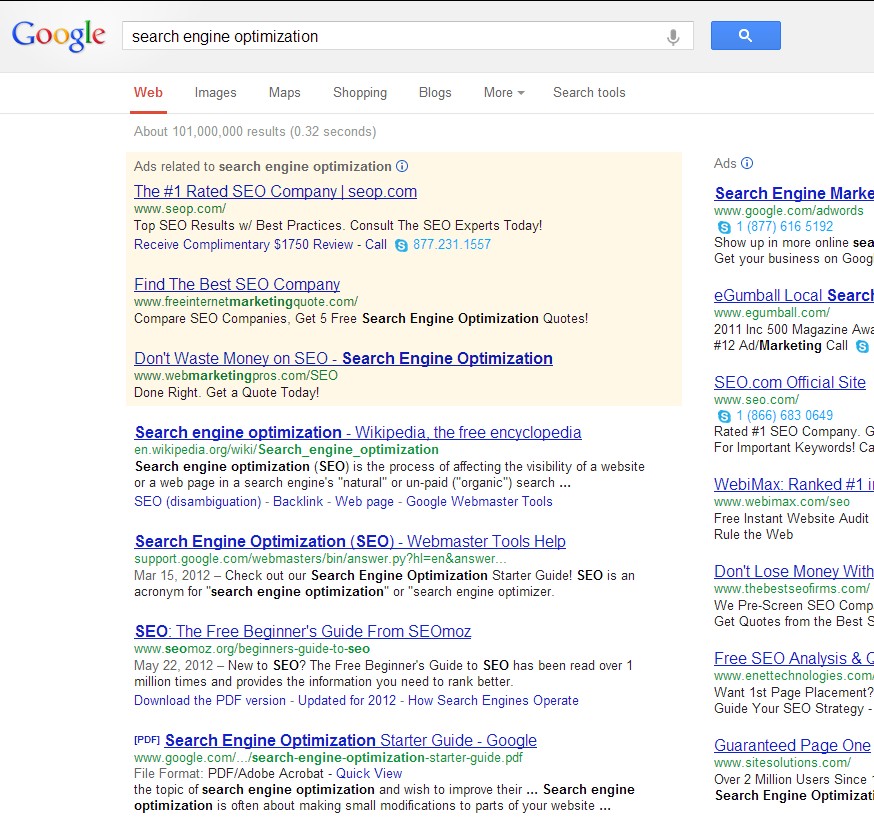Do you know what you’ll see when you conduct a Google search for your own name? Most of us want to know what kind of information is out there about us and what others are saying about us on the Web. While we may chalk it up to curiosity, or even ego, we should be aware of the results.
As a business owner it is not a matter of vanity. It’s not just your own name, either—it’s also your brand. In fact, it is an extremely important part of marketing now, in this, the Google Age. What the search engines reveal about a business matters immeasurably.
Why It Matters
So why does it matter so much? Today consumers turn to the Internet more and more as a way of informing themselves and validating their purchasing decisions. They consult online resources for relevant facts and details, they scan reviews before spending money on products or services, and they keep their eyes open for complaints or negative BBB listings.
 When an online search turns up only positive information about you and your brand, that is great news. Regrettably, not all business owners can say that their brand’s related content is all positive. Negative feedback and unwanted listings can come from a number of sources—real consumers, business rivals, and frustrated employees—and their validity matters very little. If your brand name becomes associated with negative online listings, you can bet that it will lead to decreased sales, lost customers, and embarrassment.
When an online search turns up only positive information about you and your brand, that is great news. Regrettably, not all business owners can say that their brand’s related content is all positive. Negative feedback and unwanted listings can come from a number of sources—real consumers, business rivals, and frustrated employees—and their validity matters very little. If your brand name becomes associated with negative online listings, you can bet that it will lead to decreased sales, lost customers, and embarrassment.
It All Begins With Monitoring
Regularly Googling your brand is a good way to stay up-to-date on what people are saying about it. Setting up Google alerts will also prove helpful. In fact, that may be a critical first step and base from which to decide on other tactics.
Some companies invest in the practice of online reputation management—an effort that seeks to control the first ten Google search listings for a given brand or name.
Why The First Ten?
Why focus on the first page of Google search results—the first ten listings? Statistically, 90% of online search engine users never click beyond the initial page of results. A negative listing on Google page one thus becomes a big deal. Conversely, a negative listing on, page three is more of a non-issue because so few ever get to those items.
 While most people understand it is impossible to prevent others from posting negative reviews about a company, fewer realize that it is equally unachievable to have existing listings removed. The best approach available then, is to reduce the potential for damage by managing your brand’s online reputation as effectively as possible. One of the most advantageous ways to do this is by focusing on that first page of Google results.
While most people understand it is impossible to prevent others from posting negative reviews about a company, fewer realize that it is equally unachievable to have existing listings removed. The best approach available then, is to reduce the potential for damage by managing your brand’s online reputation as effectively as possible. One of the most advantageous ways to do this is by focusing on that first page of Google results.
If you want to have influence over the way your business is presented on the Internet, then the answer is simple enough: manage the first ten Google listings. This is easier said than done, but there are a few solid techniques that you can use to your advantage.
Controlling Google’s Page One
First, you must work on building up your online assets. If your goal is to control the first page, that means controlling at least ten online assets. The trick is in finding (at least) ten online assets that you can use to populate the first page.
Start with exact-match domain names like “YourBrand.com,” .org, and .net. These listings generate the best results in terms of search engine rankings. Next, seek out social media accounts—again, utilizing account names that match your company identity.
Some social networks are better than others in terms of ranking well on Google. Although Facebook and Twitter are both beneficial and important, the best social media platform for businesses to benefit from Google ranking success is LinkedIn. Another good one is WordPress, which provides a much higher-ranking platform than Tumblr or Blogger.
Constant Care and Feeding
These assets are essentially used to form a sort of defensive wall, insulating you from online attack and negative reviews. For this strategy to work however, content creation is key. It’s important to regularly publish content to these online assets, which keeps them highly ranked within Google.
To affect the first ten Google search listings relating to your brand, is to control your company’s very online reputation—which means that, in the Google Age, these tactics should not be neglected if you wish for your business to succeed.








